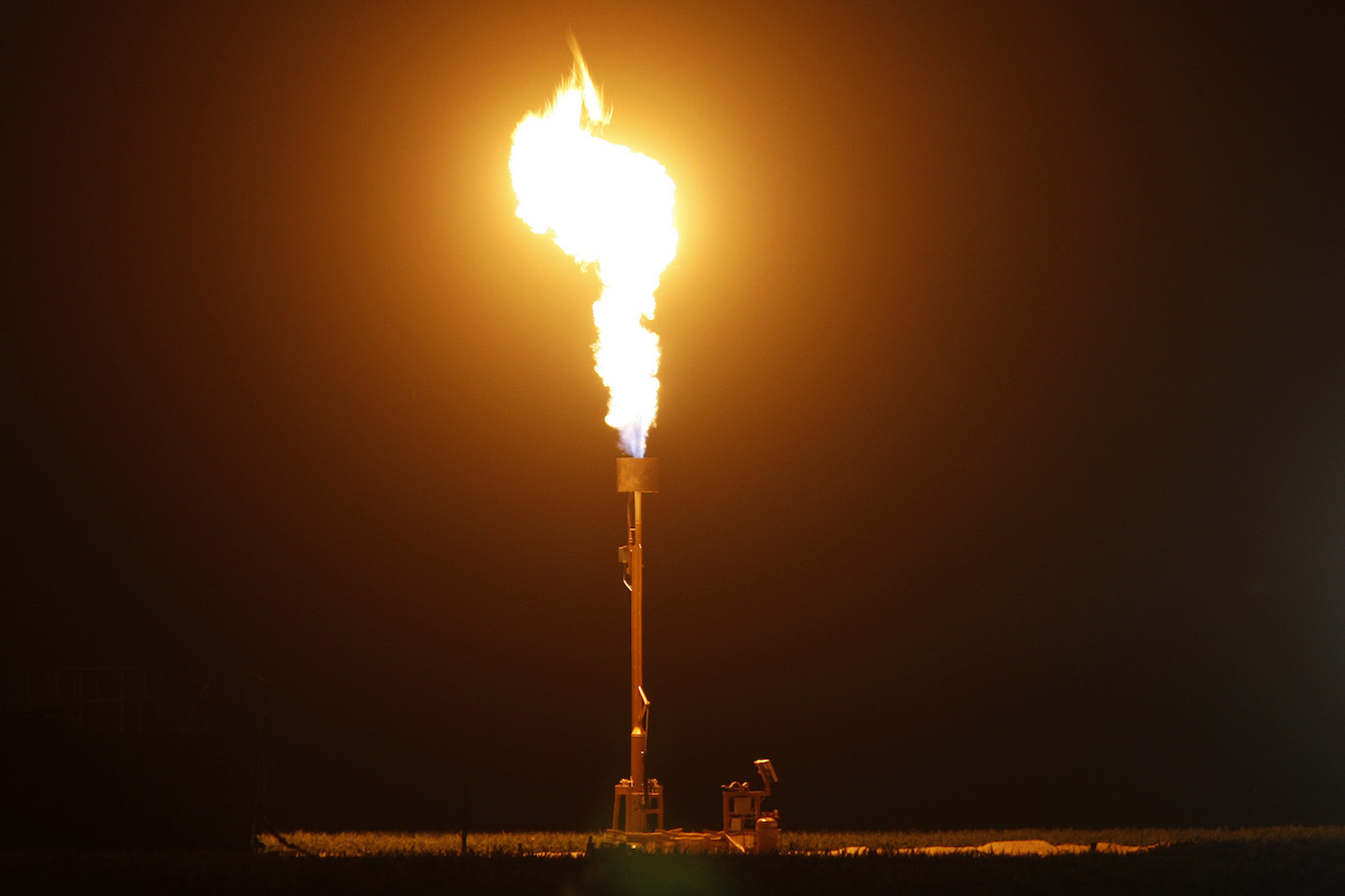The Environmental Protection Agency (EPA) is eyeing a rollback of Obama-era methane regulations aimed at forcing fossil fuel companies to monitor and repair dangerous leaks. That EPA decision is likely to have long-term implications for both human health and the environment, with outsized ramifications for major drilling states like Texas.
As early as this week, the EPA intends to unveil a proposal unraveling the current methane restrictions targeting leaks, the New York Times reported on Monday. Under former EPA administrator Scott Pruitt, the agency had already stopped enforcing the methane rule, although it remains official policy.
That move coincides with an anticipated final draft of another rollback, this one by the Interior Department, which intends to repeal a methane “flaring” restriction that regulates the burning of methane by drilling operations.
Methane leaks are a long-standing source of concern for both environmental advocates and health experts. A byproduct of fracking, methane is released during the process of fossil fuel extraction, sometimes in ample quantities. As a greenhouse gas, methane contributes to global warming and plays a key role in climate change. Methane only represents around 10 percent of greenhouse gas emissions, but the gas is 25 times more potent than carbon dioxide.
The substance also endangers human health; exposure can cause nausea, dizziness, headaches, and even loss of consciousness. Both methane flaring and leaks have caused health problems for people in places like West Texas, where residents have reported ongoing side effects amid the region’s oil boom.
In an effort to mitigate such risks, the current Obama-era EPA methane rule requires oil and gas drillers to perform routine inspections every six months. Where leaks are identified, drillers are required to make repairs within 30 days. Equipment used to trap and compress natural gas must also be inspected once every three months.
A draft copy of the new EPA rule change seen by the Times indicated that the six month inspection requirement will now be expanded from once per year to once every two years for certain low-producing wells, in addition to doubling the amount of time companies have to make repairs. The time between equipment inspections would also be doubled, with certain areas subject to harsh weather conditions, like the Alaskan North Slope, only required to perform such inspections on an annual basis.
When the EPA announced its methane reduction targets under Obama, the agency indicated that the regulations would reduce methane emissions by 510,000 tons in 2025. Costs to oil and gas companies as a result were estimated at around $530 million by that year. Under the Trump administration’s new proposals, the agency projects that such companies will recoup $484 million within that time frame, mostly making up the difference.
That’s not all the new EPA proposal would do. According to the Times, energy companies operating in states with their own methane standards would be free to follow those standards, as opposed to their federal equivalents.
For residents in at least one oil-rich state, that could have stark implications. Texas has long had lax pollution and environmental standards, due in no small part to the state’s fossil fuel lobby, a significant source of campaign donations. And while some states — like Ohio and Colorado — have sought to enact regulations to reduce methane emissions, the Texas government has done the opposite, relaxing regulations wherever possible.
With free reign from the EPA, some parts of the state could feel the impact pretty quickly. In the Permian Basin region in West Texas, where an oil boom amid a pipeline shortage has spurred an uptick in methane flaring as oil companies burn off less-lucrative natural gas, leaks and general risks to human health have become a fact of life.
A June analysis from the environmental group EarthWorks and other partners found that around 2.3 million Texans live within a half-mile of oil and gas facility, with almost a thousand schools and at least 75 medical outlets similarly located, as the Texas Observer reported earlier this year. With little to no federal oversight, it seems unlikely that those areas will merit heightened attention from state regulators.
If implemented, the methane regulation rollback would only be the latest in a series of high-profile efforts to undo current U.S. climate policy. In early August, the EPA announced plans to gut fuel economy and antipollution standards vehicles. Later that month, the agency said it would relax rules targeting carbon emissions produced by U.S. coal plants.


